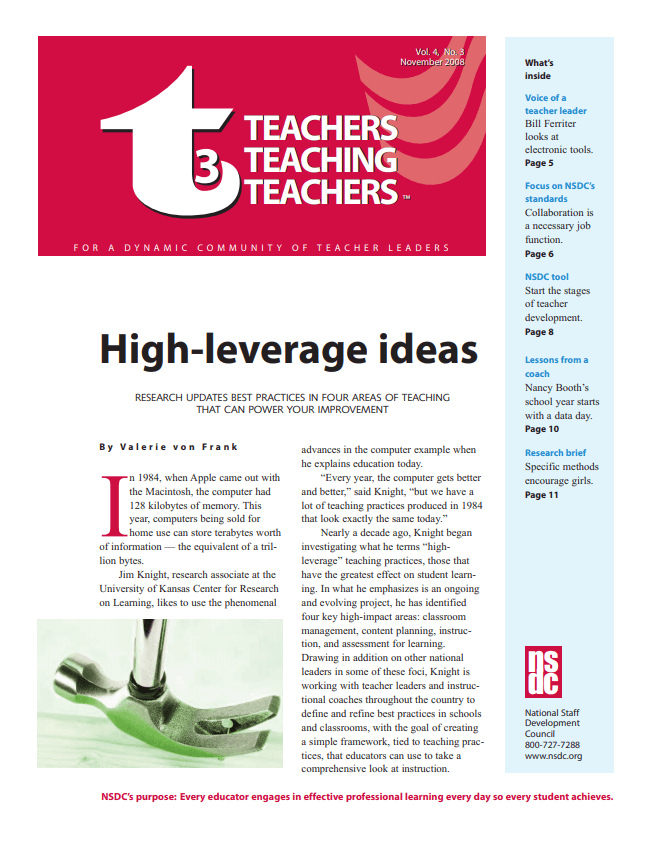
Teachers Teaching Teachers, November 2008, Vol. 4, No. 3

High-leverage ideas
Jim Knight, a leading researcher in the field of instructional coaching, is working to create a framework that ties specific practices to four key areas of teaching: classroom management, content planning, instruction, and assessment for learning. Read about teachers' responsibilities in these areas of teaching and learn how coaches can support teachers in developing their capacities to improve.
By Valerie von Frank
Voice of a teacher leader: Digital moxie helps change focus
Ferriter navigates through new technology developments with enthusiasm and without fear, and acknowledges that he learns differently now that he uses so many new, exciting tools. However, in this month's column, he cautions schools not to be fooled into thinking that buying the latest tools will make a difference. New technology doesn't improve learning - new practices do.
By Bill Ferriter
Focus on NSDC's standards: Together, we're smarter and better
Isolation and privatization have compromised educators' abilities to work collaboratively. However, skillful collaboration is essential as more learning communities form in schools. Explore the Collaboration standard through Killion's column. You'll find ideas for assessing your team's collaboration skills as you look to build a true community. (Available to the public.)
By Joellen Killion
NSDC tool: Chart the stages of teacher development
Designed to help mentors and coaches tailor support for the teachers they serve, this tool describes the needs of teachers at different stages in their development. For each stage, the chart offers specific ways that mentors can be most helpful. While the stages are tied to years in teaching, note that specific teacher behaviors are more important than years of experience in determining their stage of development.
Lessons from a coach: Year starts with a day for data
Nancy Booth, instructional coach for Boone County Schools in Madison, W.V., realized that building rapport with teachers was essential. The data her district provides each teacher each year points out the areas of instruction that need work, but until teachers are ready to face that they need help, they may not turn to the coach for support.
Research brief: Key methods encourage girls
Through an analysis of research, an expert panel convened by the U.S. Department of Education's Institute of Education Sciences has identified five ways educators can encourage girls in math and science. As both the panel and an additional study concluded, building girls' beliefs in their abilities to perform well in math and science courses will lead them to take advanced courses and continue with these fields as they consider college and career paths.
By Carla Thomas McClure

